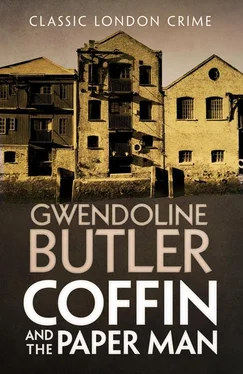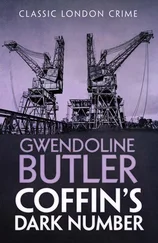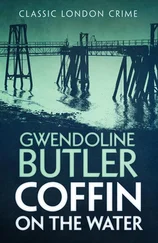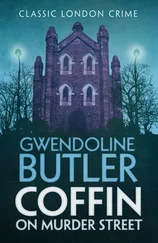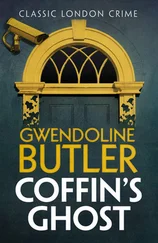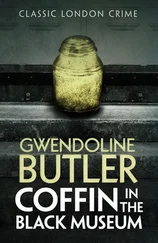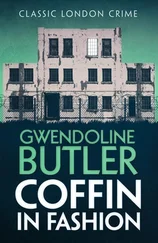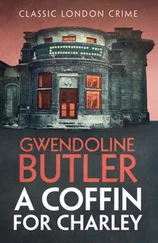WPC Flo Rusher, Flurry to her friends, drove carefully towards the newly built police headquarters, taking back streets like Pavlov Street and Down Road and Peterloo Circus, to avoid the traffic. Nice area, she thought, live around here if I could.
‘Nearly there.’
‘Remember what this was like in the old days?’ asked Fred Kinver as if it mattered to him.
‘Not really.’ She swerved expertly round an illegally parked Porsche. She knew Mr Kinver although he didn’t seem to know her. Broken Biscuits, they’d called him. Anna Mary had always had a bag of broken biscuits in her pocket.
‘Slums. Packed little houses. Full of people and mice. But friendly. Look at it now. Too bloody rich to speak to the world.’
She looked at his thin hands twisting restlessly in his lap. This is going to be one of the really bad ones, she thought.
Fred Kinver suddenly sat up alertly. ‘Wait a minute, this isn’t the way to the hospital.’
How to tell him that his daughter had died as the ambulance men touched her, and would therefore have been DOA and hence not taken to the hospital but to the police mortuary? Or for all Flurry knew, she might still be in situ in Rope Walk, being measured and photographed.
‘Not just at the moment, Mr Kinver,’ she said soothingly. ‘Our DI wants a word with you first.’
Suddenly aware of what lay ahead of him, Fred Kinver began to scream.
In one of his rare moments of leisure, John Coffin had speculated that the so-called Second City of London together with his new Force had been invented to annoy him. His patch was ripe with murders and crimes of violence, rich in sophisticated villainy. Had been for centuries, they had nothing to learn.
Two days after the murder of Anna Mary, on May 27, in the course of one of his unscheduled and unannounced forays of inspection around his new headquarters he had seen the report on Anna Mary.
Not one of our better jobs, he thought, but routine for round here. The thought did not cheer him up. He had gone through a lot since he took up his new command. Too much, perhaps.
To his surprise, however, he had no more grey hairs and was no thinner now than two years ago when he had been appointed. Perhaps his expression was more cautious.
‘You look so canny these days, John,’ his half-sister Letty Bingham had said only that morning, Saturday, May 27. She had called from New York where she was visiting her husband. Or so Coffin supposed; his name was never mentioned and possibly had long since been banished. It was not a subject he was going to raise with his sister, especially on the telephone, where he was always frugal. But time and distance made no difference to Letty when telephoning, she would call as readily from the States as from across London and talk as long in the small hours as at noon.
‘That’s because I’m always watching my rear.’
‘As good soldiers do. And you’re a good soldier, John.’
‘Think so? And a good politician too, I hope, because I have to be that as well.’
They shared the same mother but had different fathers and had experienced vastly different upbringings. Letty, offspring of a GI father, had been educated in English schools and an American university. She was a lawyer, and had been married twice. Coffin wondered about the state of this second marriage to a property magnate of some wealth, but, granted they never seem to be in the same continent together, it seemed to be holding.
Letty had a daughter, and both of them shared another half-brother called William who was a Writer to the Signet in Edinburgh.
After years of thinking himself alone in the world, Coffin now found himself with respectable family connections. And remarkably, as he had pointed out, they all seemed attracted to the law in one way and another, so there had to be something in ancestry after all.
Their elusive mother who had bred them all, choosing her mates eclectically, was dead, but her presence lingered on in the shape of some amazing diaries that Letty Bingham declared should be published.
Over my dead body, Coffin thought. A certain theatrical-ism hung over Mother’s memoirs and this quality had rubbed off on Letty (possibly all lawyers had it), who was now engaged in turning a piece of property, an old church owned by her husband in the New City, into a theatre and a theatre workshop.
The workshop was in operation, the theatre was still on the planning board, but the luxury flats which were meant to help pay the way of the theatre were complete and occupied.
John Coffin lived in one, and although he had flinched at the cost of his apartment in the tower of old St Luke’s Church, he now enjoyed living there very much. He liked looking down from his high window on the world below where he must keep the Queen’s Peace.
There were two other tenants, one of whom, the actress Stella Pinero, he knew very well, and the other, recently moved in, he had not yet met. A man, so he was told. An art dealer, rumour had it, who had bought the Lead Works Art Gallery. Or was it his friend who had bought the flat, Sir Harry Beauchamp? Rumour and invention were still working on the story.
Letty had made money on all that enterprise, but she was now much preoccupied with creating her theatre, which was why she had telephoned.
‘I want to call it the Ellen Terry. What do you think of that? We must get the name settled soon because of the publicity.’ Letty always thought about the publicity, good or bad. Any was better than none, she believed.
‘Have you asked Stella? She usually has good ideas.’
‘I think Stella is more worried about the lavatories at the moment,’ said Letty tartly. ‘She’s always so practical.’
Stella Pinero, that distinguished actress, had accepted the appointment as resident director of the Theatre Workshop, with the implied assumption that she would continue with the main theatre when built. Times away for other work in TV and films and the other companies had been carefully negotiated, and she had just finished a six months’ stint on the West End stage in a long-running comedy and was back to appear in the Workshop Theatre, richer and ready for a change.
‘I’ve got to live,’ she had pointed out to Letty, ‘and what you pay wouldn’t keep a cat alive.’ She had a cat, as it happened, or a half share, as Tiddles lived part-time with John Coffin.
‘I thought it was security that worried her.’ Letty Bingham’s enterprise in converting the disused St Luke’s Church into several luxury apartments, together with a Theatre Workshop and the planned main theatre, was popular in the district as bringing lustre on the neighbourhood, but lately a certain Them and Us attitude had marred the good will.
Stella had not liked having GO HOME YUPPIE painted all over her posters for her last production, The Birthday Party , and a load of rubbish deposited outside the stage door. Nor having one of her cast beaten up on his way home.
‘That too, but she feels happier now she’s got Bovvy End on her team as assistant director; he’s so huge she feels he ought to be able to protect them against most things.’
Though you can’t be protected against everything, thought Coffin, his mind going back to the latest murder in Leathergate.
‘Anyway, I am flying back tonight,’ said Letty. ‘That’s why I am telephoning. How are you getting on with Mother?’
‘I’ve read most of her production. Her handwriting is terrible, though. Slows me down.’
‘I suppose she did mean it as truth? Has it occurred to you it might be a work of fiction?’
‘I think she was a bit of a liar, our mother, if that’s what you mean.’
A liar and an escape artist as well: she had produced three children by three separate fathers and managed to abandon them all.
Читать дальше
